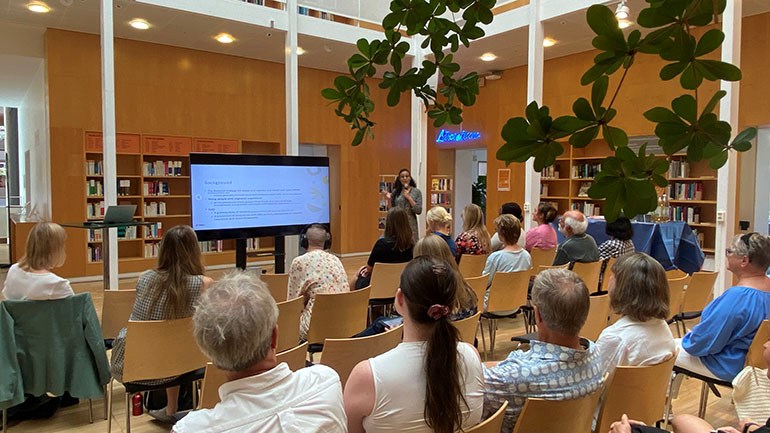Young migrants opt out of youth health centres

During World Sexual Health Day at Malmö City Library, researcher Nada Amroussia presented her thesis on the sexuality of young migrants and how they seek care for sexual and reproductive health.
A low number of migrants go to youth health centres: this was the most surprising finding of researcher Nada Amroussia at Malmö University in her thesis on young migrants' sexuality and how they seek sexual and reproductive health care.
In her thesis, Amroussia interviewed twenty people aged 17-26 with Middle Eastern roots who self-identify as migrants. They live in Skåne, a region in the south of Sweden, and the length of time they have been in Sweden varied from two months to 16 years.
The questions revolved around sexuality and their experiences of seeking help and knowledge, particularly at youth clinics.
The most striking finding is that only a few have visited a youth centre or other clinic offering advice and help on sexual and reproductive health. Amroussia has identified some possible explanations:
For some, it was linked to shame and taboo while for others, it was not relevant to go there. They reasoned that you only go there if you are sexually active, like if you have an STD or are pregnant.
Nada Amroussia
Among those who had visited a youth health centre, the majority had positive experiences. Instead of health centres, the internet was a common source of sexual and reproductive health information, friends were another source.
In her thesis, Amroussia also interviewed 31 carers working at youth clinics and women's clinics, most of them in Malmö. The aim was to find out what challenges the carers experience when meeting migrants.
In analysing the responses, two different attitudes emerged among the interviewees. Some preferred to focus on the individual rather than the person's cultural background. “Focusing too much on culture and migrants as a group fuels prejudices,” they claimed.
Others, however, felt that culture was relevant and could create challenges in the encounter. This can include the fact that the person seeking care can only imagine being examined by a female gynaecologist, and how people view virginity and masturbation.
Other challenges highlighted concern interpreters. The quality of interpretation was not high, according to the interviewees, especially when talking about something as intimate as sexuality.
Some of the participants in the study have also noticed that people with migration experience are more passive in the encounter than others and there is a lack of basic knowledge about sexuality. In order to face dilemmas that arise, carers deal with them in different ways.